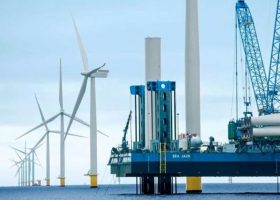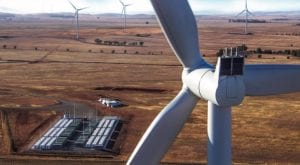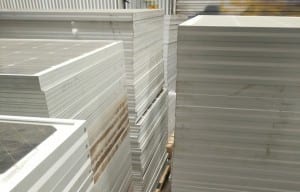Earlier this month, the CEO and managing director of Santos, Kevin Gallagher, contributed an article to the Australian Financial Review entitled Exporting gas and storing CO2 is pathway to greener future (paywall).
Unfortunately, the argument that “our LNG is good for Australia and good for the world…” cannot be substantiated by scientific or medical facts in peer reviewed articles.
The article argues the position that “the cleanest burning of all fossil fuels, natural gas produces the least amount of carbon dioxide – a major cause of the enhanced greenhouse effect”
This might be so when it is burned in the household or by industry, but it fails to account for the potent fugitive methane emissions that escape during the many stages of production and transport.
Four years ago a study from the Melbourne Energy Institute flagged this issue and there have been many studies confirming that the emissions profile of gas is little different to that of coal.
A recent study in the Journal Nature indicates that anthropogenic fossil methane emissions have been underestimated by about 38 to 58 [million tonnes] methane per year, or about 25 to 40 per cent of recent estimates. Most of this methane is emitted by the gas industry and the IPCC has indicated it must be urgently controlled because it is 85 times more potent as a climate warmer than carbon dioxide.
This increase in fugitive emissions is responsible for the large rise in Australia’s domestic emissions due to the export of gas as shown by ABS data.
Let us be clear, gas will do nothing to decrease the carbon footprint in Asian countries nor will it help Australia reduce its domestic emission commitment to the Paris agreement. The facts show that gas is not a transition fuel for the electricity sector, Prime Minister. Indeed enthusiasm for gas is often accompanied by policy barriers against renewable energy.
While gas does burn cleaner than coal reducing air pollution, renewable energies produce zero air pollution problems.
The implication that “Almost two billion people, about a quarter of the world’s population, still live in poverty on less than $US3.20 per day” will be helped by gas is a gas-pipe-dream. The poorest people are often distant from a grid, if there is one at all, and have poor road access. How would gas be delivered? Canisters dropped by helicopter, vast gas pipelines with massive compressor stations built by the Chinese?
Solar household systems are the healthy and affordable answer in Africa, Bangladesh and some other Asian countries and many large companies are donating to their installation. The gas industry could help by making donations in lieu of their non-payment of tax to express its concern for the poor in action.
The production of gas in Australia is a health risk and, as with coal, the health impacts become simple externalities ignored by government for political expediency; one should ask why health studies in gas fields have not been studied significantly in Australia as they have in the US.
In the United States where rapid and expansive development of gas and oil fields has occurred in close proximity to residential areas, over 1800 papers with a substantial body of research findings have been published. A review of these studies shows that proximity to gas development risks low birth weight infants, pre-term births, congenital heart disease and other congenital disorders, cancers and blood and immune diseases in children.
Health and water security concerns cause stress to residents in Queensland’s vast gas fields and for the proposed and for the proposed Narrabri, Northern Territory and Western Australian developments. Clearly there are legal and insurance implications for industry and governments allowing these risks to proceed.
How could the gas industry in Australia be so dismissive of this work? Partly because of incompetence in state regulation of the industry.
In Queensland the Auditor-general questioned transparency and the oversight of the CSG industry.
There are hundreds of wells to monitor by government or by industry in Queensland and monitoring is costly to carry out thoroughly.
In NSW much of the Chief scientist’s long standing coal seam gas report on regulation has not been implemented.
These derelictions of duty to the public explain why health impacts may not be evident in Australia; the data is not available to relate health events to potential instances of release of toxins into air and water, and chemicals in spills. Health departments have been reluctant to embark on studies when their governments are besotted by gas development
What can be done? Australia needs a climate change policy based on scientific facts, not on opinion.
Dr David Shearman AM FRACP Emeritus Professor of Medicine, University of Adelaide










